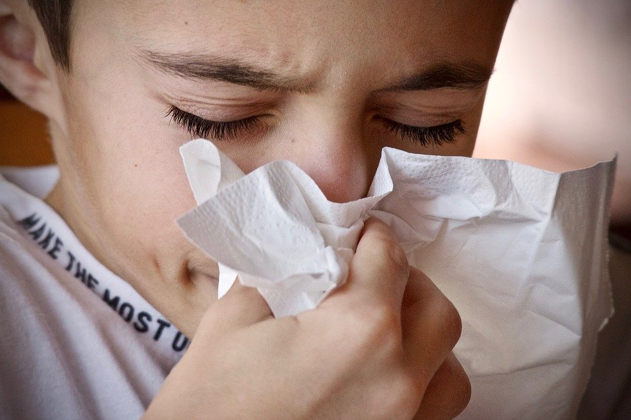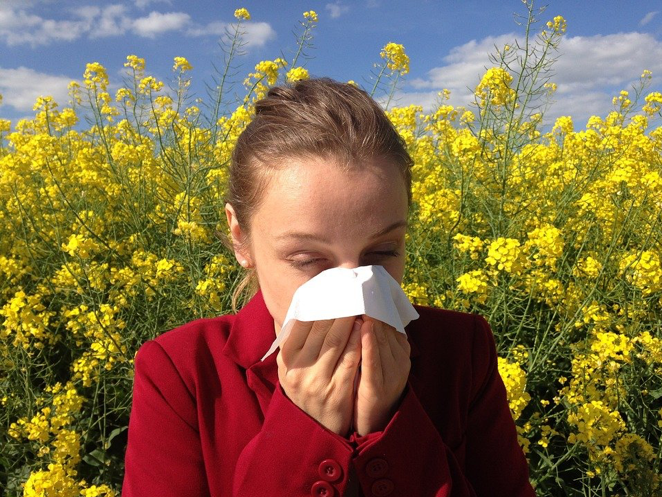Monthly Archives: December 2020
What Is The Relationship Between ENT Doctors & Allergists?
Do ENT doctors and allergists services overlap? Many people do not understand when they need an allergist and when to visit an ENT doctor for their condition. This confusion is a result of both doctors treating similar symptoms. Most allergies, such as hay fever, have symptoms like a blocked nose, sneezing and coughing, and require treatment from an allergist. In this article, you will understand the relationship between an allergist and an ENT surgeon.
When you have any problem related to structural problems and require surgery in the ear, nose, and throat, visit an ENT doctor. They will analyze your complexity and look for the cause behind the symptoms. Their training involves treating conditions related to the bone and cartilage. When you have trouble breathing due to nasal blockage, a sore throat, or scrappy voice, an ENT surgeon can help you. However, most of these problems may be the result of one or another allergy. Even half of the sinus difficulties involve allergies, and the symptoms may be allergic or non-allergic. Sometimes when you visit an ENT specialist for a breathing problem, they recommend an allergist to find out about the allergies you might have.

(Source)
Allergists & Immunologists
An allergist or immunologist can help you with the conditions related to your immune system. That involves chemical reactions in the body due to foreign particles or something your immune system thinks is a threat to the body. However, your body overreacts and causes various symptoms.
When you Need to Visit an Allergist
Allergists have special training to diagnose and treat conditions such as allergic inflammation. However, they cannot perform surgeries. You may develop allergies when your body decides that a substance is harmful. Even when the substance is not threatening to the body, the defense mechanism or antibodies signal the body, so the immune system starts overreacting, causing an allergic reaction. The symptoms of allergies vary depending on the allergen. Environmental allergens are widespread and cause facial pressure, nasal congestion, throat clearing, drainage, and sneezing. People with environmental allergies are prone to chronic sinus pain and headaches.
No matter how old you are, but allergies have a significant impact on your quality of life. Sometimes, when it is hard to find the allergen you are allergic to, your condition can worsen. That is where an allergist helps. They identify the reason for the allergic reaction and help you avoid interaction with the allergen and manage the symptoms. Here are some conditions in which you need to visit an allergist for better treatment:
- Food allergies
- Immunodeficiency
- Atopic dermatitis
- Recurring bronchitis
- Wheezing, shortness of breath, or asthma
- Chronic coughing
- Hoarseness or change of voice
- Postnasal drainage
- Water, red, or itchy eyes
- Itching throat or ears
- Sneezing
- Runny nose
- Nasal congestion and difficulty in breathing
- Facial or sinus pressure
- Sinus infections
ENT Surgeon
When you have issues with your nose, ears, or throat, along with your neck and head, you need to visit an ENT specialist. They can also diagnose allergic conditions that relate to your ears, nose, and throat. They treat conditions such as hearing loss, facial reconstructive surgery, and tonsillitis, etc.

(Source)
When you Need to Visit an ENT Specialist
They perform ENT surgery to fix the defects and injuries in the painful, infectious regions and cause breathing and listening issues. You can visit an ENT surgeon if you have an ear infection. Below, you can find how an ENT surgeon will help with your ear, nose, and throat:
Ear
An ENT specialist can diagnose and treat ear disorders such as tinnitus, vertigo, pain in the ear, and ear infections. They can also treat birth disabilities related to ears.
Nose
An ENT specialist treats issues that affect your breathing, smell, and physical appearance of your nose. They can also help you with the nasal cavity, sinuses, and other nose related conditions.
Throat
If you have problems regarding speech, digestion, swallowing, and eating, an ENT doctor can provide solutions. They manage all throat-related problems.
Head and Neck
They also help you with trauma, deformities, face, head, and neck problems. They also perform cosmetic surgeries. An ENT surgeon can also help with treating facial movement, hearing, sight, and smell. You should visit an ENT specialist if you are suffering from the following conditions:
- Deviated septum
- Cleft palate
- Voice or swallowing problems
- Hearing Impairment
- Ear infections
- Chronic sinusitis
- Tinnitus
- Dizziness
- Balance issue
- Breathing problem due to throat or nose
- Injury or pain in the throat, ear, and nose
- Head and neck tumors or cancer
What is the Relationship Between ENT Doctors & Allergists? Conclusion
Allergists and ENT surgeons usually work together for better results. They understand the similarities of conditions. Sometimes, an allergist might refer you to an ENT doctor when you need surgery, and sometimes, an ENT specialist will recommend you to an allergist for an allergic reaction.
If you have allergic concerns, contact us for an appointment in person at our offices in Midtown Manhattan, or to schedule a telemedicine call. Dr. Boyan Hadjiev is the top allergist in NYC.
Boyan Hadjiev, MD
30 East 40th Street | Suite 1200
New York, NY 10016
212-319-5282
Sources
https://www.webmd.com/cold-and-flu/ear-infection/otolaryngologist-ear-throat#1
https://www.globalpremeds.com/blog/2016/07/27/what-does-an-ent-specialist-do-3/
Anaphylactic Shock
Anaphylactic shock occurs due to Anaphylaxis. This condition occurs when your body severely reacts to a substance, and on contact, you start experiencing a life-threatening reaction. When this happens, your body will release some chemicals. There are various serious consequences and complications for these conditions. If you are unable to visit an immunologist in time, this can be very dangerous as anaphylactic shocks can be fatal.

(Source)
Causes of Anaphylactic Shock
When your antibodies consider or overreact with food or any other harmless substance called allergens, it causes Anaphylaxis. Antibodies are the special body cells that attack and destroy infections such as bacteria or viruses that enter the body. You may not react when you come in contact with it as this will make antibodies active. However, when the next time that substance enters your body, the immune system overreacts and causes symptoms.
Children mostly suffer from anaphylactic shock due to food. The most common food children react to include wheat, soy, eggs, milk, fish, shellfish, or peanuts. However, in adults, peanuts, tree nuts (such as almonds, pine nuts, pistachios, cashews, hazelnuts, and walnuts), or shellfish, can lead to anaphylactic shock as well.
You may experience Anaphylaxis due to various allergens. Allergens are substances that are not harmful, but your body treats that substance as a threat. Here are some allergens that your body may find allergic:
- Pollen from grass, tree, and ragweed
- Touching and inhaling protein particles from latex. These protein particles are available in balloons, gloves, and rubber bands.
- The sting from insects can also cause you a severe anaphylactic shock.
The immune system of many people also reacts to the following substances:
- Hazelnut
- Celery
- Kiwi
- Potato
- Peanuts
- Melons
- Chestnuts
- Papaya
Sometimes a combination of various foods along with breathing allergens can cause severe anaphylactic shock. So you need to be aware of what things you are allergic to and avoid those substances.
Symptoms
When you are in contact with a substance you are allergic to, you will start experiencing the symptoms immediately. The initial symptoms include runny nose and uneasiness. However, if you are still in contact with the substance, you will develop severe symptoms such as:
- You will experience an increase in your heartbeat
- You might faint
- You will experience dizziness
- You will start vomiting
- Difficulty in breathing and tightness in the chest
- The mouth will also swell
- You may also develop hives
When your condition is worse, you may faint and stop breathing. You might lose your consciousness and require urgent medical attention.
Treatment for Anaphylactic Shock
When you are experiencing an anaphylactic shock, the first thing that you need to do is to inject epinephrine, which will give you a bit of control. After that, you need to visit the immunologist so that you can receive more adrenaline through IV. Antihistamines and glucocorticoids are also effective with this condition. These medications will help you reduce the inflammation in your esophagus and restore your ability to breathe.
Immunologists might also give you beta-agonists so that you can breathe easily. You can get enough oxygen by receiving supplemental oxygen. An immunologist will also treat any complication that you may experience after having an anaphylactic shock.
Prevention
You can avoid anaphylactic shocks by preventing the following practices:
- You can wear a tag or a card around your neck. This will show everyone that you are allergic to specific substances.
- Always keep your emergency kit along with you so that you can relieve from anaphylactic shocks and contact the immunologist. There are various injectors and shots that you can always carry for use when you are in an emergency.
- You need to alert your immunologist whenever you go through anaphylactic shock.
- Allergies from the sting of the insects need more care. For instance, you should wear long sleeves while going out, keep your windows and doors closed, etc.
- For food allergies, you need to read the ingredients of the product you are using.
- While visiting the restaurant, you should inform the waiter about the food that is allergic so that they can suggest only the food that does not include that item as an ingredient. You should remember that even a small quantity can trigger your allergy.
Conclusion
When you find someone experiencing anaphylactic shock, you need to immediately contact an immunologist and seek help. Sometimes when you take epinephrine doses, you still need medical attention or further care, so visit the immunologist after the attack. Various medications can help you relive instantly. However, before using any medication, always consult with the immunologist to avoid any risk of reaction.
Do you need to consult with an immunologist about an allergic reaction? If so, please contact us at 212-319-5282, or visit our offices in Midtown New York City. You can also schedule a telehealth consultation with our immunologist, Dr. Boyan Hadjiev, to discuss your condition.
Sources
https://www.healthline.com/health/anaphylactic-shock#treatment
https://www.webmd.com/allergies/anaphylactic-shock-facts#
https://www.mayoclinic.org/diseases-conditions/anaphylaxis/symptoms-causes/syc-20351468
https://www.webmd.com/allergies/understanding-anaphylaxis-treatment
Serving all of New York City and the Tri State Area including Zip Codes: Top Allergist NYC Midtown, Chelsea and Clinton: 10001, 10011, 10018, 10019, 10020, 10036 | Gramercy Park and Murray Hill: 10010, 10016, 10017, 10022 | Greenwich Village and Soho: 10012, 10013, 10014 | Lower Manhattan: 10004, 10005, 10006, 10007, 10038, 10280 | Lower East Side: 10002, 10003, 10009 | Upper East Side: 10021, 10028, 10044, 10128 | Upper West Side: 10023, 10024, 10025
